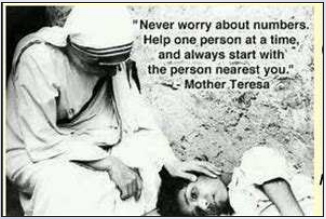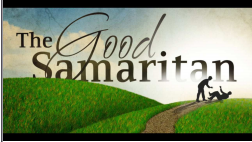Who Is My Neighbor?
https://stmarystcatherine.org/wp-content/themes/osmosis/images/empty/thumbnail.jpg 150 150 Charlestown Catholic Collaborative Charlestown Catholic Collaborative https://stmarystcatherine.org/wp-content/themes/osmosis/images/empty/thumbnail.jpgWho would not want to ask that question – or better still, receive the answer to a question about how best to find a way to Heaven? Life is crazy, surprisingly brief, and filled with unexpected twists and turns. Unless you believe this sweet journey in Charlestown is all there is and that our beloved who have died before us are gone forever, you join the multitudes who are looking hopefully to the horizon.
And so it is, the Jewish scholar of the law poses the question to Jesus: “What must I do to inherit eternal life?” Jesus directs the scholar of the law to search within for the answer, “What is written in the Law? How do you read it?” Jesus asks him. In response, the scholar accurately recites the beautiful Jewish prayer, The Shema: ʺYou shall love the Lord, your God, with all your heart, with all your being, with all your strength, and with all your mind, and your neighbor as yourself.ʺ The questioner himself accurately answers the question asked.
Then, the scholar asks this profound question: “And, who is my neighbor?” As you may recall, Jesus again leaves it to the scholar to decide for himself by relaying a story about the fellow who was traveling on the road from Jerusalem to Jericho and was robbed, stripped, beaten, and left for dead. After a priest and a Levite had chosen to pass by the stricken victim, a Samaritan came upon the man and selflessly cared for him. To the Jewish community at that time, a Samaritan was held in very low regard. And yet, when Jesus asked the scholar who had been a neighbor to the beaten man, the answer was of course, the Samaritan. The story concludes as Jesus tells the scholar to “go and do likewise.”
It seems to me inescapable to not apply this story to my own life and my community and even to my beloved country. For the conclusion seems to be that the path to heaven is wide open to the one who does love God and genuinely cares for whoever is in my path and is in need. And we all know that every day our paths encounter persons in need.
The stories of how our country is caring for children and families at our southern border shame me. I believe indifference and apathy in the face of such atrocities makes me culpable. Perhaps you recall that challenging statement by Eldridge Cleaver: If you are not part of the solution, you are part of the problem.
Wherever and whenever we see and know of another’s suffering, I think we are compelled to do something, whatever that may be and as insignificant as that might seem, taken together and in faith, it will make a difference.
Fr. Ronan
Fifteenth Sunday in Ordinary Time
Weekend of July 13/14, 2019 Today’s Gospel turns our attention to one of Jesus’ most familiar stories, the Parable of the Good Samaritan. It is about living how God intended us to live: to acknowledge God’s divine love and compassion lavished upon us, and to extend that love and compassion upon others without reservation. We can find a lot of reasons for not stopping to help someone. We can talk ourselves out of being Good Samaritans. Strangers are not our responsibility, or are they? Good stewards understand that God’s mercy is a gift that must be shared, and that doing the right thing, acting as Jesus would act toward others, is the only course of action for one who lives according to the demands of the Gospel. How might you be a Good Samaritan this week?


